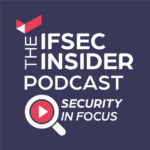(Photo: ‘Members of ISIS’ on Flickr/Day Donaldson)
‘Security decision-making in the age of Russian revanchism and terrorism’ was the weighty topic of discussion for the headline act – Dr Samir Puri of Kings College London – at ASIS UK’s Spring Seminar 2017.
Taking place on Tuesday 14 March at PwC London, the event kicked off with news of rising membership numbers.
New members
Chapter chairman David Clark CPP PCI PSP revealed that this year alone, the UK chapter – the fourth largest globally and the biggest outside of North America – has welcomed nine new members from Amazon UK, who are now studying for their CPP Certification, as are a large group from Amazon operations on mainland Europe.
The Foreign and Commonwealth Office (FCO), which employs more than 14,000 people in nearly 270 diplomatic offices, accounts for 48 new ASIS UK members, with more expected over the few months.
Next up in the running order was regional vice president Andy Williams CPP, who explained ASIS UK’s internal structure and reaffirmed the importance of networking to the organisation.
ASIS UK Young Professionals Group
Paul Winstanley CPP, from the ASIS UK Young Professionals Group (speaking on behalf of ASIS UK YP Lead Stuart Eustace, global lead for risk, security and crisis management at Pladis Global), flagged up his group’s upcoming launch event, in April.
Defined loosely as security professionals under the age of 40 or with fewer than five years’ experience, young professionals can access a ‘toolkit’ and support from peers through the initiative.
Established in November 2016, the Group is seeking two more appointments to the core team, ideally with ICT and/or project management skills.
‘Strategy’: much misunderstood
Headlining the event was special guest speaker Dr Samir Puri, the influential lecturer in international relations at Kings College London.
Puri charted the evolution of terrorism and the tectonic shifts in international relations since the end of the Cold War heralded the unipolar moment.
But first he sought to clarify a common misunderstanding. The term ‘strategy’, said Puri, is regularly misused and mistakenly seen as synonymous with mere planning.
“Everyone has a plan ’til they get punched in the mouth.” Mike Tyson
But strategy, he said, is fundamentally about dealing with uncertainty and has been characterised as the sum of determining your ‘ends’, ‘ways’ and ‘means’.
Perhaps the most seminal work on military strategy remains Sun Tzu’s The Art of War from 514BC, albeit it has probably been cited more in business than military contexts in recent decades.
In the perverse logic of war, violence essentially serves as a form of communication, said Puri. Military commanders might launch an assault not just to gain territory or wipe out enemy units, but also to send a message to the enemy.
In his book Strategy: A History, Lawrence Freedman incongruously, quotes Mike Tyson: “Everyone has a plan ’til they get punched in the mouth.” He also says that strategy “is about getting more out of a situation than the starting balance of power would suggest.”
Which brings us to Vladimir Putin. The election of President Trump means the world is under new security management, noted Puri. Certain countries are seizing the chance to exploit that fact, as well as the Brexit vote in June.
Pining for the days of state-sponsored terror
Things were so different back in 1990. US economic and military power was untrammeled and terrorists were sponsored by states, which the US could then punish.
When George Bush Junior invaded Iraq in 2003 he assumed that this model still prevailed. We all know what happened next, and now, in 2017, terrorism can be planned and enacted by a lone individual – without any assistance, never mind with the backing of a nation state.
George Bush the Elder’s 1990 Kuwaiti adventure, which was a response to the invasion of a sovereign state and was backed by a UN resolution, enjoyed rather greater moral and legal legitimacy (arguably the war would have been more virtuous had the coalition troops stayed a while longer).
More recently, The success of the decapitation strategy – culminating in the 2011 assassination of Osama in Laden – seemed to give the West the upper hand in the War on Terror, but any respite has proven to be brief.
Defined not by territory but ideology, Islamic extremism is as resilient as any other ‘ism’ (such as communism) and is simply rebranded for each new generation. Enter Isis, in 2014.
Putin has carved out a role as power broker in Syria, Ukraine and the US presidential elections – all the more remarkable given that Russia is, economically, a basket case
Putin the power broker
The unipolar moment has long since passed. China now rivals the US economically and, 17 years on from the humiliating loss of prestige and population (50% of its citizenry, no less), Russia is globally influential once again.
Putin has carved out a role as power broker in Syria, Ukraine and the US presidential elections – all the more remarkable given that Russia is, economically, a basket case.
Puri, who recently spent a year in Ukraine (involving trenches, he said the conflict there was like a 20th century war), said Putin has a “grand vision” plus an ability to exploit events – a rare combination in one person.
Obama, on the other hand, failed to wield US power productively (though Puri declared himself a fan of the former president in other ways).
The speaker also noted the contrast between how China wields soft power – providing money in return for access to natural resources – and the approach of the West: providing aid on condition of improving human rights or releasing political prisoners.
Enterprise security risk management: beyond “boots on the ground”
The event concluded with a panel debate on enterprise security risk management (ESRM).
The day organisations treat security as seriously as safety would be the day that “nirvana” has arrived for the profession
Rich Stevens from Ernst & Young reflected on the challenge of explaining the discipline’s merits – covering not just guarding and CCTV but also an assessment of risk and threats generally – in the boardroom.
Andrew Wilson, group facilities manager at Mercedes Benz UK, noted that businesses were becoming more aware of the potential for adding real value through security. A profession once derided as a “Dad’s Army” has become more professionalised, more sophisticated, and when assessing service providers, he demands added value beyond “boots on the ground”.
Security risk and resilience expert Bruce Braes CPP CSyP says that if you can demonstrate to bosses that you are mitigating risk then securing funding becomes easier. The director of resilience consulting at Optimal Risk Management opined that the day organisations treated security as seriously as safety would be the day that “nirvana” had arrived for his profession.
Deploying the analogy of a football team, Unified Security founder James Willison intimated that ‘collaboration’ is the watchword when it comes to ESRM. Whether you’re a defender, midfielder or attacker, everyone’s on the same team.
The profession’s most pressing challenges, said the Imbert Prize winner, include the myriad vulnerabilities being created by IoT – though even IP cameras are often not encrypted.
Fielding a question from the audience about the risk of prioritising cost at the expense of service delivery – the G4S Olympic fiasco cited as one example – Andrew Wilson said he asks service providers to “show me your marking” when the price was suspiciously low. If they cut resources to “the quick” then they need to tell me “how can you do it” on such meagre resources, he said. If they can’t do that, then you shouldn’t buy the job.
Listen to the IFSEC Insider podcast!
Each month, the IFSEC Insider (formerly IFSEC Global) Security in Focus podcast brings you conversations with leading figures in the physical security industry. Covering everything from risk management principles and building a security culture, to the key trends ahead in tech and initiatives on diversity and inclusivity, the podcast keeps security professionals up to date with the latest hot topics in the sector.
Available online, and on Spotify, Apple Podcasts and Google Podcasts, tune in for an easy way to remain up to date on the issues affecting your role.


